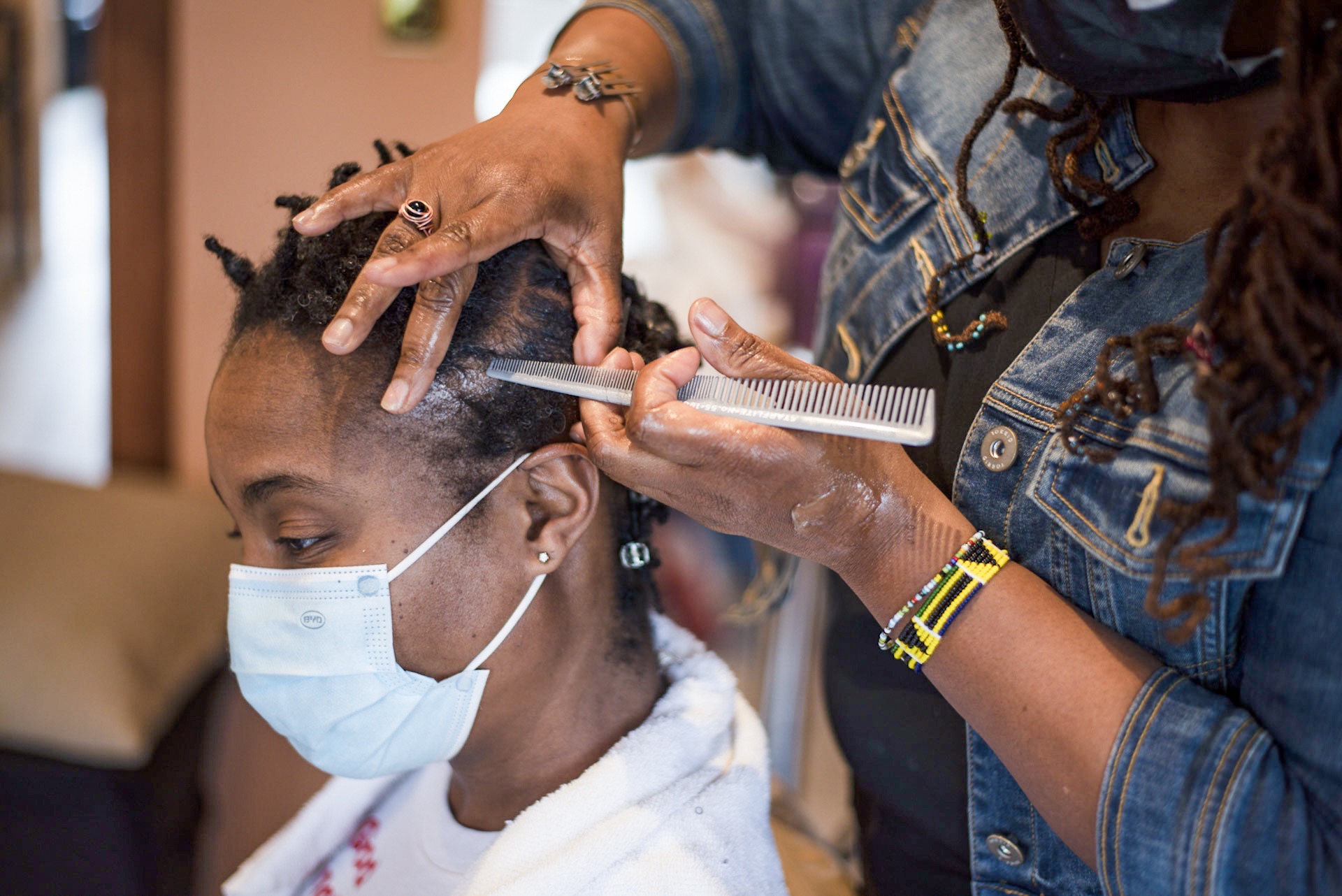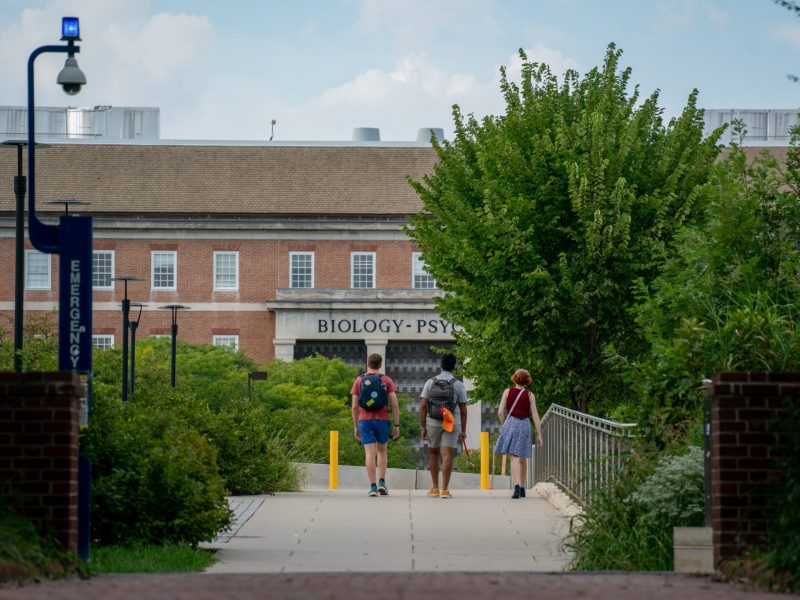When Angela Walker contemplated going to beauty school, the curriculum’s content was a dealbreaker.
Walker wanted to work with textured hair, something most cosmetology schools would not teach her to do.
Cosmetology educators and stylists are calling out cosmetology schools as being “Eurocentric” for leaving textured hair out of their curriculum.
The $20,000 to $30,000 investment would not teach Walker about textured hair, she said. The 1200-hour hairstylist diploma program at Aveda Institute Maryland in Bel Air teaches services such as shampooing, cutting, coloring and styling.
The hair styling curriculum includes roller curls, thermal styling and blow-dry styling. Other accredited programs have similar curriculums.
“They don’t even teach people that they can cut hair any way other than the hair being straight,” the owner and CEO of N Natural Hair Studio said.
Aveda Institute Maryland was unable to comment when requested for a media interview in February.
The hairstylist program costs $19,446 and covers cosmetology kit supplies, which includes several manikin heads. In 2019, only one manikin head given to students as a part of their supply kit did not have straight hair, according to the school’s catalog. In 2022, this increased to two manikins.
Regina Holbert, the owner of Hair + Space Salon in the College Park Shopping Center, said all of her stylists are licensed cosmetologists, and most of them received their first curly, natural hair training ever in 2020 when they joined the salon.
Maryland does not have any licensing requirements for hair braiders or those who work with natural hair. The hairstylist license is for those who offer services such as coloring or use chemicals such as bleach or perms on clients’ hair.
“If you specialize in straightening natural hair, that’s very different,” Walker said. “If you’re working with thermal tools, you do need to go to school.”
More than 15 states require a license to work with natural hair. Most states requiring licenses expect hair braiders to get a special braiding license after up to 500 hours of training, while there are still a few states that require full cosmetology training for hair braiders.
Outside of the standard beauty curriculum and license requirements, there are options for those who want to learn to work with natural hair.
Montgomery College has a continuing education certificate program for natural hair care education. The 36-hour course, which is currently being taught remotely, teaches students — anyone interested in learning about natural hair including braiders and licensed cosmetologists — how to take care of hair without permanent chemicals.
The course is taught by Susan Peterkin, a licensed cosmetologist with years of experience with natural hair.
Her start in cosmetology began when she worked and learned from natural hair expert stylist Diane Bailey in a full service salon in Brooklyn after high school. At the turn of the natural hair movement, the salon went from full service to only offering natural hair services.
Peterkin, who is also the CEO and founder of the Natural Hair Industry Convention, explained that the cosmetology industry still does not not pay natural hair the attention that it needs even while the natural hair industry booms.
NHIC addresses this disparity by providing a place for natural hair stylists and others in the industry to network, develop professionally, influence the industry, advocate for legislation and educate people on natural hair.
Peterkin said after hundreds of years of being told textured hair isn’t beautiful, people are now accepting that it is beautiful, and the next step is better education on natural hair care.
“I just want everyone to appreciate and love their natural hair and realize that is the best way for our youth,” Peterkin said.



